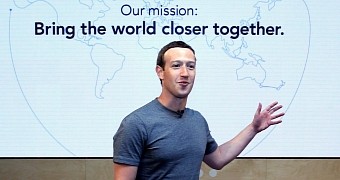Facebook says the 250 pages of internal Facebook documents seized from Six4Three's founder Ted Kramer and published by the UK Parliament are selectively chosen only to paint one side of the story.
The massive trove of internal Facebook documents posted online using parliamentary privilege on UK's Digital, Culture, Media, and Sport Committee show that the social network whitelisted some companies allowing them to access private user information even after the new privacy rules enacted between 2014 and 2015.
Furthermore, some of the emails published demonstrate that Facebook's CEO was directly involved in denying access to the platform's data to Twitter's Vine app which eventually led to its demise.
Also, as detailed in some of the secret internal documents, Facebook made it as hard as possible for its users to know details behind the various changes it made to its Android app which allowed the company to stockpile its users' text and call history.
"As we’ve said many times, Six4Three — creators of the Pikinis app — cherrypicked these documents from years ago as part of a lawsuit to force Facebook to share information on friends of the app’s users," says Facebook's response. "The set of documents, by design, tells only one side of the story and omits important context."
Facebook says it never sold its users' data to third parties
Moreover, although the documents containing internal communication between its executives and selectively published by British lawmakers are designed to give the impression that the social network sold its users' data, Facebook says that "the facts are clear: we’ve never sold people’s data."
"For example, accusations about potential misuse of our APIs were made in a recent hearing before the DCMS Select Committee, but the full story was omitted," added Facebook.
"We ultimately released the emails showing that engineers who initially raised questions about “billions” of API calls realized there were only about 6 million legitimate calls from Pinterest, not a Russian actor."
On the "Response to Six4Three Documents" page, Facebook also addressed the competitor app targeting, whitelists, friends' data value, reciprocity, Android app call and SMS history collection, as well as the usage of the Onavo free VPN app information gathering, with responses designed to explain its stance and actions for every issue in the list.

 14 DAY TRIAL //
14 DAY TRIAL //